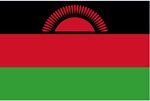Savannah Karmen-Tuohy
 Savannah is a rising second-year student at the NYU School of Medicine. She grew up in Connecticut and moved to Baltimore, MD to complete her undergrad degree in Neuroscience at Johns Hopkins University. After graduating, she spent a year living in Tel Aviv, Israel, working on a project centered on end-of-life decision-making in stroke care and the impact of Jewish law on Israeli medical practices and ethics. Deferring medical school for a year after receiving a Fulbright Research grant, Savannah moved to Blantyre, Malawi, where she investigated behavior changes in children who survive cerebral malaria, through the lens of caregiver perspectives garnered through semi-structured interviews. These projects shared a focus on country-specific patient populations and treatment practices, an aspect of research that Savannah hopes to continue to pursue in future projects. Her interest in global health and the provision of medical care to underserved populations grew substantially throughout these two years living abroad. She aims to continue to engage with the field of global health – specifically in the realm of infectious disease – throughout medical school and in a future career of clinical practice and research.
Savannah is a rising second-year student at the NYU School of Medicine. She grew up in Connecticut and moved to Baltimore, MD to complete her undergrad degree in Neuroscience at Johns Hopkins University. After graduating, she spent a year living in Tel Aviv, Israel, working on a project centered on end-of-life decision-making in stroke care and the impact of Jewish law on Israeli medical practices and ethics. Deferring medical school for a year after receiving a Fulbright Research grant, Savannah moved to Blantyre, Malawi, where she investigated behavior changes in children who survive cerebral malaria, through the lens of caregiver perspectives garnered through semi-structured interviews. These projects shared a focus on country-specific patient populations and treatment practices, an aspect of research that Savannah hopes to continue to pursue in future projects. Her interest in global health and the provision of medical care to underserved populations grew substantially throughout these two years living abroad. She aims to continue to engage with the field of global health – specifically in the realm of infectious disease – throughout medical school and in a future career of clinical practice and research.

'This is the only place where I have been helped': Perceptions of support needs and acceptability of interventions for caregivers of children who survive cerebral malaria with behavior problems
6/10/2019 - 8/01/2019
Malawi
What does the Kean Fellowship mean to you?
The Kean Fellowship serves as an incredible opportunity for me to return to Malawi, a country that I grew to love and appreciate during the time I lived there. In addition to further honing my research skills and deepening my understanding of the country and its culture, this fellowship allows me to pursue a project I find interesting and greatly important in the healthcare context of Malawi. Without the Kean Fellowship, my proposed project would not be carried out, due to funding and logistical constraints in Malawi. While the fellowship is a chance for me to grow as an early-career physician scientist, it is also an opportunity to investigate the needs of a largely neglected population, collecting concrete data that will hopefully have a tangible, positive impact on the cohort with which I am working. Receipt of the fellowship represents an investment by ASTMH in me and my career aspirations and the global practice of clinical research and healthcare improvement.
What do you anticipate learning?
Last year, my learning curve in Malawi was steep; the science of malaria, the logistics of qualitative research, the language and culture of the country – all were unknowns to me. This year, I feel that I am returning to a familiar place in some, but not all, senses. I hope to further deepen my understanding of the diagnosis and treatment of malaria and, even more so, the neurocognitive morbidity associated with the disease presentation in children. I want to dive deeper into the rich culture of Malawi, improving my conversational Chichewa skills and supplementing that understanding with further exposure to the customs of the country. I also aim to continue to strengthen ties with my international colleagues, foundations that I hope to build on through collaborations in the future.
What interests you about tropical medicine and what problems are you interested in solving?
My interest in tropical medicine stems from the complicated overlap of many factors related to the epidemiological triad of infectious disease – pathogen, host, and environment – that play out when practicing in tropical areas of the world. In my experience, a tropical medicine case is rarely straight forward, and clinicians have to constantly update their thinking to tease out salient features of a patient’s presentation. Pathogens are cunning and creative in their constantly evolving attack on the immune system, and hosts have multi-factorial determinants of health that cloud almost every clinical picture. The tropical environment compounds these pathogen and host factors into a confluence of virulence and infectiousness. I am interested in the study of infectious disease and intrigued by the type of practice that is required in tropical areas, many of which are considered low- to middle-resource settings. The disparities in healthcare services offered across these settings present many issues, from diagnostic delays and inconsistencies in treatment practices to a lack of available resources and, at times, clinicians. These issues affect societies at all levels, from individual sick patients to their families and communities and, eventually, the country as a whole. The amelioration of these discrepancies is paramount, and I aim to focus my future research and clinical practice on these issues.